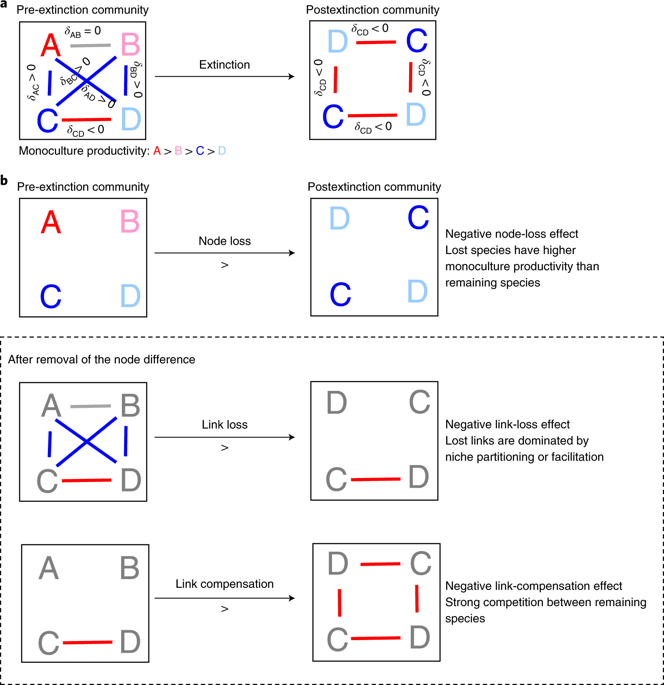Nature Ecology & Evolution ( IF 16.8 ) Pub Date : 2020-03-02 , DOI: 10.1038/s41559-020-1127-4 Yuxin Chen 1, 2, 3 , Yuanyuan Huang 1 , Pascal A Niklaus 1 , Nadia Castro-Izaguirre 1 , Adam Thomas Clark 4, 5 , Helge Bruelheide 5, 6 , Keping Ma 7 , Bernhard Schmid 8, 9

|
Unprecedented species loss in diverse forests indicates the urgent need to test its consequences for ecosystem functioning. However, experimental evaluation based on realistic extinction scenarios is lacking. Using species interaction networks we introduce an approach to separate effects of node loss (reduced species number) from effects of link loss or compensation (reduced or increased interspecific interactions) on ecosystem functioning along directed extinction scenarios. By simulating random and non-random extinction scenarios in an experimental subtropical Chinese forest, we find that species loss is detrimental for stand volume in all scenarios, and that these effects strengthen with age. However, the magnitude of these effects depends on the type of attribute on which the directed species loss is based, with preferential loss of evolutionarily distinct species and those from small families having stronger effects than those that are regionally rare or have high specific leaf area. These impacts were due to both node loss and link loss or compensation. At high species richness (reductions from 16 to 8 species), strong stand-volume reduction only occurred in directed but not random extinction. Our results imply that directed species loss can severely hamper productivity in already diverse young forests.



























 京公网安备 11010802027423号
京公网安备 11010802027423号